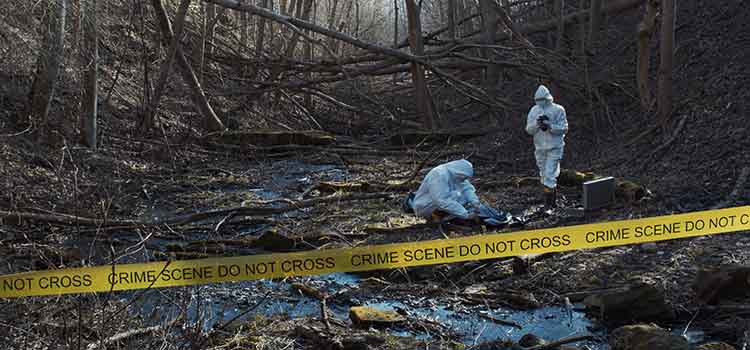In this article
How to become a Texas Ranger

What is a Texas Ranger?
The Texas Rangers are the primary investigative agency of the Texas Department of Public Safety (TDPS), and the unit has a long and mythic history within the state. Established in 1863 by Stephen F. Austin as a settler-sourced protection group, a Texas Rangers’ main mission today consists of conducting criminal and special investigations and assisting local law enforcement in controlling crime and violence.
Duties and responsibilities
The official Texas Rangers website states they participate in investigations involving:
- Murder, robbery, sexual assault, burglary and theft
- Fraud and bank fraud, credit card and computer fraud and theft
- Misconduct by public officials
- Threats against the state and federal governments
- Missing persons cases
- Border surveillance, information gathering and security
A Texas Ranger also acts as investigator when any member of the Rangers team is killed or injured in an intentional attack, and they work as forensic investigative hypnotists and artists to help other law enforcement agencies gather information on criminal cases. Some members may provide security for the Governor and other dignitaries when they travel within the state of Texas.
- Interrogating suspects
- Preventing crimes
- Assisting police during emergency situations
4 steps to become a Texas Ranger
Joining the ranks of this elite team consists of the following steps:
Meet the basic requirements.

You must be a U.S. citizen, have a valid Texas driver’s license, be in excellent physical and mental health, have an exceptional moral character, have eight years of experience in a law enforcement agency where you worked in criminal investigations, and be currently employed in the Texas Department of Public Safety with at least the rank of Trooper II. Military police experience is not counted as law enforcement experience and will not be considered for eligibility.
Have the right education.

One requirement you must meet to join the Texas Rangers is eight years of experience working as a criminal investigator or law enforcement officer. Criminal investigators in Texas must have a degree and police officers have two options to entry: either be 21 years of age with a high school diploma or GED, or be at least 18 years of age and hold an associate degree.
Pass the entrance exam and oral interview.

You must pass the entrance exam and only candidates with the highest passing scores will advance to the Oral Interview Board for further questioning before the final selections are made. Of note is very little recruiting is ever conducted for Texas Ranger roles, and it is common for many officers to apply for only a few openings.
Complete 40 hours of in-service training.

Rangers are required to complete 40 hours of training every two years, but most Texas Rangers complete far more training than that. Many pursue forensic investigative training in such subjects as hypnosis, which has been used to solve criminal cases in the state.
Requirements to consider before applying for the Texas Rangers unit
One major requirement to join the Texas Rangers is you must already be employed by the Texas Department of Public Safety. The requirements to become employed by the TDPS are:
- Be at least 17 years of age (some departments may require different age levels)
- Complete a thorough criminal history background check
- Pass a drug test
- Have all previous employment verified and all provided references checked
- Have no felony convictions or certain misdemeanor charges, which are grounds for rejection
Education requirements for Texas Rangers
While the Texas Rangers website does not specifically state that a college degree is mandatory, the education requirement to become a criminal investigator in Texas is a bachelor’s degree and three years’ experience as a police officer. Police officers should have a high school diploma or GED and be 21 years of age, or they may apply at 18 years of age if they hold an associate degree.
Earning a four-year bachelor’s degree in criminal justice, forensic science, sociology or an area of legal studies could pave the way and also help prepare you for advancement above the entry-level Sergeant rank later on. The Texas Rangers chain of command begins with Sergeant and advances to Lieutenant, Captain, Major, Assistant Chief and finally, Chief.
Texas Ranger career paths
Once you are accepted, there are several career paths that operate under the main Texas Rangers division. Candidates can choose from these special operations teams if they want to get trained and specialize in a particular area of law enforcement.
Special Operations division
The Special Ops division contains six highly skilled officer programs designed to combat threats made by criminal organizations, terrorists and border region drug traffickers. If you qualify you may have the option to join one of these areas:
- Special Weapons and Tactics Team (SWAT):
- Based in Austin, Texas, these Rangers respond to high-risk incidents that are critical, such as hostage or active shooter situations.
- Bomb Squad:
- Technically the Bomb squad is part of SWAT and is responsible for responding to crisis situations that involve explosive devices of all natures. These professionals are trained in Huntsville, Alabama and receive rigorous training in counter terrorism and all sorts of explosive devices. The program is accredited by the FBI under nationally recognized guidelines for Bomb Squads.
- Ranger Reconnaissance Team:
- A covert and overt operations team that primarily workers along the Texas-Mexico border region or where traditional law enforcement teams can’t operate. Their main duty is to disrupt criminal activity associated with drug cartels.
- Social Response Team (SRT):
- The SRT works in tandem with Texas Highway Patrol and the Criminal Investigations Division and includes the Texas Rangers to conduct high-risk warrant services and provide first response to critical situations.
- Crisis Negotiation Teams (CNT):
- Again, working in tandem with the Texas Highway Patrol and the Criminal Investigations Division, these Texas Rangers respond to incidents where they deploy as a team and evaluate critical incidents, collect intelligence and relay information to those in command.
- Border Security Operations Center (BSOC):
- Based in Austin, the BSOC is the main hub of operations for six Joint Operations Intelligence Centers strategically based along the Texas-Mexico border. Their primary duty is to gather and analyze intelligence-based evidence around criminal border exploitation, and to forward information to law enforcement and government partners.
Specialized programs
The Texas Rangers unit also offers three specialized programs for members, and each provides focused services to the state. The programs are:
- Unsolved Crimes Investigation Program:
- The Texas Rangers provide Texas law enforcement agencies with a process of investigating unsolved murders or what appears to be a serial killer case because there is no statute of limitations on the offense of murder in the state of Texas.
- Public Corruption Unit:
- The Texas Rangers are tasked with fighting public corruption as it relates to public officials, law enforcement officers and any person that holds a position of public trust under Bill HB2086, which passed in 2016.
- Public Integrity Unit:
- The Texas Rangers investigate crimes committed by state officers and employees.
Texas Ranger salary
Texas Rangers enter the field at what would be the equivalent to the rank of Sergeant in the Texas Department of Public Safety law enforcement chain of command. This is the minimum rank they can enter the unit, according to the TDPS website. The TDPS 2024 Salary Schedule says the annual pay for a Step 1 entry-level Sergeant is $81,615. The top tier of experienced Sergeants (Step 5) earn $97,087 annually.
Comparatively, the U.S. Bureau of Labor Statistics says criminal investigators earned a median annual salary of $91,100 while police and detectives earned a median annual salary of $72,280 in 2021.
FAQs
How many Texas Rangers are there?
Currently, out of the thousands of law enforcement officers in the state of Texas, there are 234 full time employees, 166 of whom are commissioned Rangers. This speaks to the elite status of the group, who despite their small number, have statewide jurisdiction.
Are there any women Texas Rangers?
Yes. In fact, in 2020 two women—Wende Wakeman and Melba Saena—were the first females to be promoted to Ranger captains in TDPS history.
What is the average age of a Texas Ranger?
The average age of a Texas Ranger in 2020 was 44 years of age.
How did the Texas Rangers start?
In the year 1823 there were approximately 600–700 people living in the Texas territory near the Mexican border. Stephen F. Austin, realizing these colonists were vulnerable, called them together to organize a group to provide protection to the settlers. Austin called this select group the Rangers because they ranged over the entire territory that became Texas and gave rise to the group currently known as the Texas Rangers. After the revolution and through 1840 the Rangers primary duty was to provide protection from the Indians. The term “Texas Ranger” did not appear officially in a piece of legislation until 1874.
Resources
If you want to learn more about Texas Ranger history, or how to become a Texas Ranger, the following resources are a great place to start:
Texas Department of Public Safety–Texas Rangers: Read the history, find requirements for the job and learn what you’ll need to do to join this elite special team of law enforcement.
What Texas Rangers Do–Texas Ranger Hall of Fame and Museum: Home of the Texas Rangers Museum where you can study cases, read histories, buy merchandise and find out what you’ll need to know from the Texas Rangers themselves.
